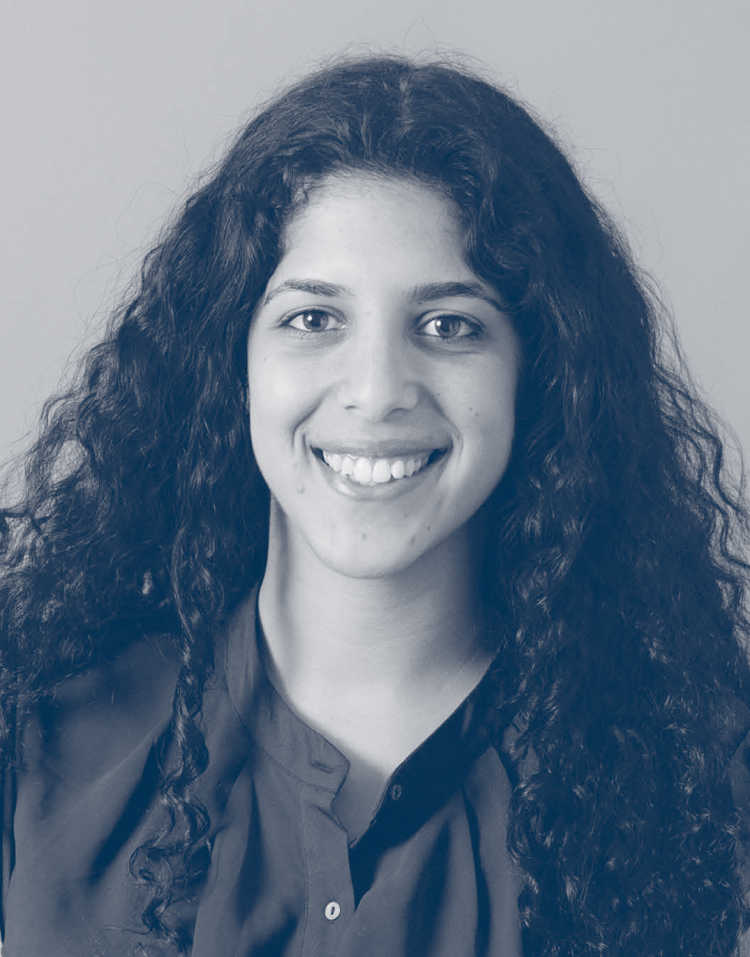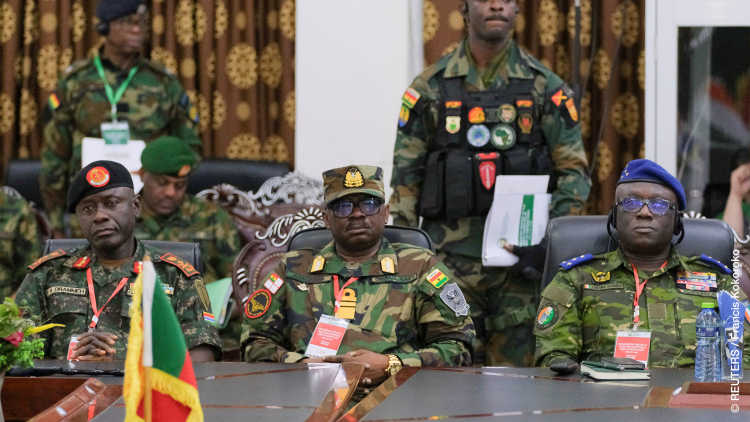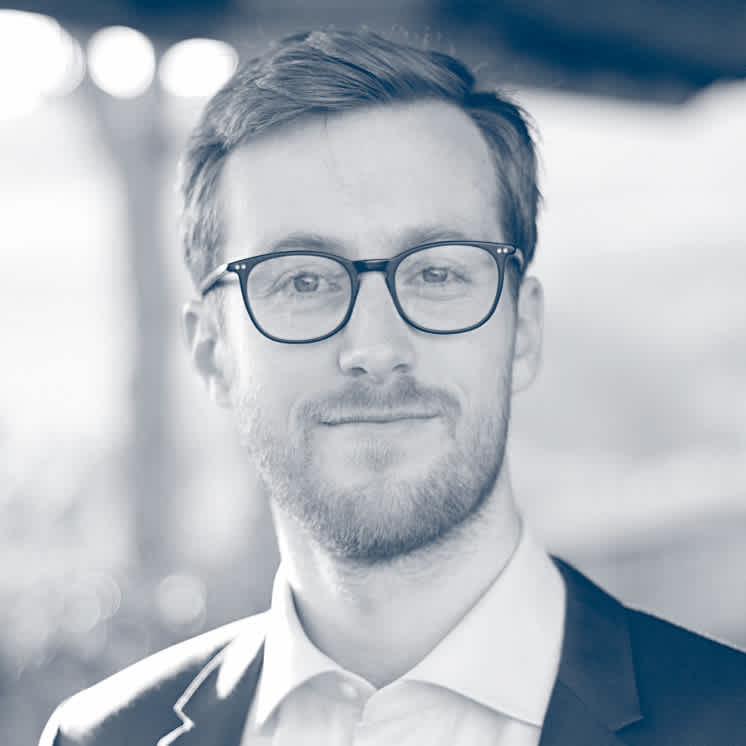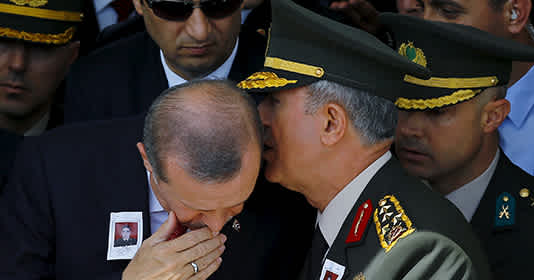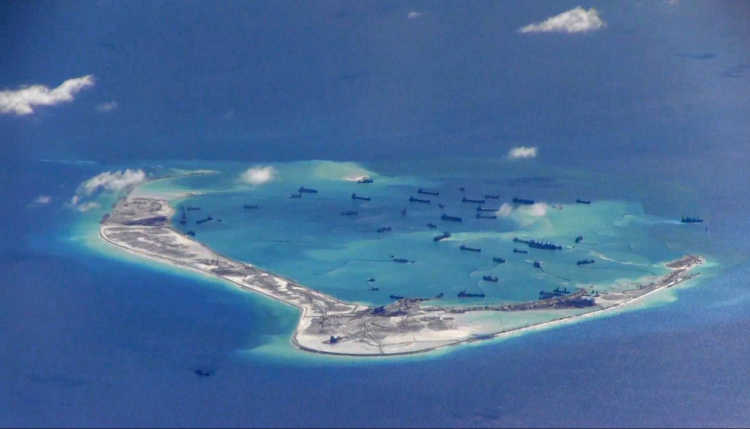- Home
- Publications
- GIGA Focus
- A Force (Still) to Be Reckoned With: The Military in African Politics
GIGA Focus Africa
A Force (Still) to Be Reckoned With: The Military in African Politics
Number 5 | 2020 | ISSN: 1862-3603

Recent years have seen a re-militarisation around the world, with the military making a comeback on the political scene, especially in Latin America. In sub-Saharan Africa, though, the trend seems different: Before 1990, Africa was the region with most military coups, and many countries on the continent were ruled by military regimes. Since 1990, however, the military has been steadily returning to the barracks. Despite this, the armed forces still matter in politics and remain a force to be reckoned with.
More visible forms of military intervention in politics have decreased over the last few decades. Openly military regimes have virtually vanished. Military coups still occur, but their frequency is declining.
However, less visible forms of intervention by the military in politics persist. In almost 40 per cent of sub-Saharan cases, the military remains a powerful actor in politics; in 15 out of 49 countries, “generals in suits” rule as heads of government.
Causes of military involvement in politics include dissatisfaction with civilian governments and specific grievances and ambitions of officers. The diminished role of the military follows general trends of political opening after the end of the Cold War in Africa but can be also ascribed to both policies followed by regional organisations and a rejection of military rule by the respective populations.
Effects of politicised militaries are ambiguous and depend on context – particularly on regime type. Disloyal militaries threaten democracies but “democratising soldiers” can also contribute to the downfall of autocrats. Loyalty stabilises democracies, but in several cases the security forces are the main support for repressive autocrats.
Policy Implications
Politicised militaries often get involved when countries face political and socio-economic problems. The most promising way to reduce politicisation is through professional security forces. Professionalism refers to staying out of politics, which facilitates an improved ability to tackle security risks such as terrorism and insurgencies without resorting to excessive force. Solutions must grow in Africa, but outside actors can support professionalism by assisting security sector reform.
On the Retreat: Military Regimes, Coups, and Presidents
Recently, countries around the world have become re-militarised, with the armed forces and other security actors re-emerging in political spheres, particularly in Latin America (Kurtenbach and Scharpf 2018; Scharpf 2020). In sub-Saharan Africa, the overall picture and trend are different: Africa used to be the world region with the most military coups and military regimes (see Basedau 2008; Powell and Thyne 2010). But in the last 30 years, the military has slowly but steadily been returning to the barracks. Yet, the armed forces have never fully ceased to matter in politics and remain a force to be reckoned with in many countries.
The most visible forms of military intervention in politics are military coups and military regimes. Both have decreased over the last few decades. Openly military regimes have virtually ceased to exist. Presently, there are almost no political regimes in which the military directly rules without formal legitimisation by elections. An exception is Eritrea, which has not held any elections since its independence from Ethiopia and where the single-party-turned-rebel-movement holds a tight grip on the country. Other regimes are described as civilised military regimes (see Basedau and Elischer 2013), especially Chad. The regimes are formally civilian, but the effective power still is with the military. Countries such as Burkina Faso, Guinea, and The Gambia, which counted as civilised military regimes around a decade ago, are now ruled by civilians. In Rwanda and Uganda, former rebel leaders came to power by the sword and have remained in power since the late 1980s and early 1990s, respectively.

Military coups still occur on a rather regular basis, and this forms an exception worldwide, but their number is steadily in decline. Figure 1 shows the number of military coups per decade, starting in 1960. Military coups are defined as unconstitutional takeovers by the military or other state security actors. It is not always easy to distinguish coups from coup attempts but usually more than one week of holding power is required to speak of a coup and not just an attempt (see e.g. Powell and Thyne 2010; Elischer 2017). Sometimes scholars also count takeovers by civilians as coups, though these are clearly not military coups. Likewise, when the military withdraws support to a president in trouble such as in Burkina Faso in 2014, which led to Blaise Compaoré’s downfall, we are not dealing with a military coup either. Such an example, however, shows the important political role of the military in times of crisis or so-called endgames (Kuehn, Eschenauer-Engler and Croissant 2019).
However, since 2010 up to six military coup d’états occurred in sub-Saharan Africa, making it the world region with the most frequent coups: The military overthrew governments in Niger in 2010, in Guinea-Bissau and Mali in 2012, and in Sudan in 2019. The other two instances are more contested as to whether or to what extent military coups occurred. In Burkina Faso in 2017, members of the presidential guard of former president Compaoré arrested the interim president and cabinet ministers, but civilian rule was restored by loyal armed forces only one week later. In 2017 ageing dinosaur Robert Mugabe was overthrown by members of the security apparatus led by Major General Constantino Chiwenga. However, the new interim government and parts of the international community refrained from calling the event a “coup.” Such a label has consequences for development cooperation and membership in the African Union. In sum, the numbers show a steadily decreasing number of military coups in sub-Saharan Africa, although the curve may have flattened in the last decade before 2020. It still represents an all-time low and is substantially less compared to most of the decades since independence, especially before the end of the Cold War, when there were over 20 coups per decade.
Another, related indicator of military influence is when top executive officials have a professional military background (see Figure 1; Basedau 2008). It makes sense to also account for former rebel leaders in this regard as they have been active military men, albeit not in the regular forces. Some African presidents satisfy both criteria. Chadian president Idriss Déby was chief of staff before he turned insurgent and took power at the apex of a rebellion in 1990. The same holds true for former chief of staff François Bozizé, who came to power in the Central African Republic (CAR) in 2003 – he was ousted in 2013 when rebels stormed the capital. As of early 2020, according to our count (see Figure 1), in almost one-third of all countries (i.e. 15 = 30.6 per cent), former military officers or rebel leaders were leading the executive. In another six countries, including eSwatini (formerly known as Swaziland) and Tanzania, we found that heads of states had undergone military training, for instance as conscripts, but were never professional senior members of the security apparatus. The case of Djibouti poses a special problem: President Ismaïl Omar Guelleh once served as a police officer and later as head of the country’s intelligence service. He thus was part of the security sector, but not the military itself. All in all, more than two-thirds of states do not have any kind of “generals in suits” as presidents or other heads of the executive.
As for the number of military coups, the number of “military presidents” has decreased over time. Compared to an assessment in late 2008 (see Basedau 2008), the number went down from 19 countries to 15 as stated above. In no less than 13 countries, the presidents have changed. In countries such as Burkina Faso, CAR, the Democratic Republic of the Congo (DRC), The Gambia, Guinea, Niger, and Sudan autocratic military men lost power, either through coups or in elections. In Guinea-Bissau and Mauritania, two former generals were elected president while retaining military leadership. South Sudan became independent in 2011 and has since been ruled by former rebel leaders. Emmerson Mnangagwa in Zimbabwe, a former intelligence officer, was enthroned after the fall of Robert Mugabe in 2017 and held controversial elections in 2018. In seven countries where civilians had previously ruled, former military officers became heads of state between 2008 and 2019; most came to power through the ballot box. Examples of rather free elections include those of Muhammadu Buhari in Nigeria and Julius Maada Bio in Sierra Leone. Power transfers were also regular for João Lourenço in Angola and Azali Assoumani in the Comoros. In only six countries have presidents with military backgrounds “survived” since 2008 – notably in Chad, Equatorial Guinea, Eritrea, Congo-Brazzaville, Rwanda, and Uganda. It is probably no coincidence that almost all of these countries are currently considered highly undemocratic.
Less Visible Influences: The Military as a Veto Actor
However, less visible forms of military intervention in politics are more relevant than military coups and former generals as presidents – and they persist in African politics. Coups are a rather exceptional form of intervention and they indicate that other efforts to influence politics have apparently failed. Such influence is of course difficult to assess as it frequently occurs behind the scenes. In this case, qualitative expert assessments can help. For instance, the Bertelsmann Transformation Index (BTI) has an indicator on whether the (civilian, elected) government is actually able to govern and whether or to what extent non-elected actors can veto government policies. Such veto actors can be religious actors or business communities, but the armed forces or other actors from within the security apparatus can play that role as well. When looking at the most recent round of assessments (BTI 2020)[2], we find that in no fewer than 20 countries (= almost 40 per cent) the military remains a powerful veto actor (see also Croissant, Eschenauer and Kamerling 2016). Examples include notorious cases such as Chad, Burundi, Mauritania, and Nigeria. However, the military can also play a role behind the scenes without being openly visible. Tanzania is a case in point, where the military does not appear in public but commands an important influence nevertheless. Also, in the DRC “the true power of government seems to rest on the sole control of the army” (BTI 2020), which other indicators do not make apparent. Former DRC president Joseph Kabila was forced to step down in 2019 – his party losing the subsequent presidential election – only to form a minority coalition in Parliament with new president Felix Thisekedi.
Other cases are more difficult to assess, as reports do not mention the political role of the military in cases such as Angola, Mozambique, and South Sudan, where former liberation movements have been in power since independence. It is not unlikely, though, that the military is important – either as a separate actor or as an important part of the governments themselves. In The Gambia the role seems to be diminished since Yahya Jammeh, who had ruled the country since a 1994 coup, was forced out of power in 2016.
While the almost 40 per cent of all sub-Saharan African countries represents a high number, we observe a downward trend. A number of reports explicitly mention that the military has become less politicised. This is even true for countries once notorious for coups and military regimes such as Benin and Ghana, in which politicisation of the military now seems to be history. Yet, it also holds true for countries with recently still politically active military in cases such as Burkina Faso, Guinea, Guinea-Bissau, The Gambia, Niger, and Nigeria. Lately, the influence of the military has also decreased in Mali and Sudan. Especially in the latter two cases, it remains to be seen whether the return to the barracks will be final. A diminished role does not mean that the armed forces are now completely apolitical. The trend is clear-cut, though. Only Gabon, where young officers attempted a coup in 2019, seems to have witnessed a more political army recently.
The matrix (Table 1) tentatively plots countries against the military background of the heads of the executive and the military’s veto power while also indicating whether coups took place in the last decade and whether the role of the military has increased or decreased according to expert assessments. The plot can be read from two angles that summarise the main message of this policy brief: The biggest group – comprising 23 countries – does not show any sign of military involvement in politics. In ten countries the military’s role seems to have tangibly diminished. However, the military can be classified as a veto actor in 20 countries, and at least 15 cases evince “ruling generals.” Nine countries falling into both of the latter categories simultaneously further underscores the substantial influence of the military that remains.

Varied Causes and Ambiguous Effects of Politicised Militaries
The role of the military in politics should not be underestimated. The military possesses physical means of coercion – in short: weapons – and some scholars have argued that the military’s non-intervention in politics requires explanation, not its presence (e.g. Croissant and Kuehn 2011). Especially in times of crisis, the security forces can and do make the difference. However, the effects of a political military on the ensuing regime type are ambiguous (see also Elischer 2017 and Table 1). Clearly, a disloyal security apparatus is a threat to democracy, and a loyal military contributes to a democratic political system. By contrast, a loyal military in an authoritarian regime hinders democratisation, and security forces are those who exert repression in its most brutal form (Basedau and Elischer 2013; see also Kurtenbach and Scharpf 2018 on Latin America).
In turn, disloyalty poses a risk for authoritarian regimes, too, opening a window of opportunity for democratisation. A case in point are the protests in Burkina Faso against the efforts by then president Compaoré to prolong his term in office. The armed forces did not intervene, which led to his downfall in 2014. In Niger, President Tandja Mamadou was even overthrown directly by the armed forces in 2010, when he tried to unconstitutionally extend his time in office. There are other examples of the impact of “democratising soldiers,” such as in the fall of dominant and single-party systems in Mali (1991) and – at least indirectly – Guinea (2008). Generally, coups no longer result in openly military regimes and rarely simply lead to autocratic restoration. Successful coup plotters rush to announce elections, and unlike in previous decades these elections are actually held – although the outcomes in terms of democratic quality substantially differ (Elischer 2017). Apparently, contextual conditions such as the absence of social tensions and an active civil society count (more). Zimbabwe provides a useful example: after Mugabe’s fall, hopes for substantial democratisation have been disappointed thus far. In Sudan, the military has made efforts to maintain as much power as possible since the uprisings in 2019; despite the military sharing power with civilians at the time of writing, it remains to be seen who will eventually gain the upper hand.

Causes for interventions by the military are varied. Open interventions by the military usually result from political and economic crisis and related dissatisfaction with the civilian leadership (e.g. for Africa: Basedau 2008; globally: Croissant and Kuehn 2011). Sometimes, more narrow ambitions also stimulate coups. For instance, the coup in Mali in 2012 was borne out of mass dissatisfaction over poor equipment and lack of support in the fight against Tuareg and Islamist rebels. In other cases, the military mutinied because of bad pay and lack of career advancement opportunities (e.g. lately in Côte d’Ivoire). Correspondingly, enjoying privileged access to state funds can boost loyalty. In Congo-Brazzaville, Equatorial Guinea, and Eritrea – also arguably in Angola – the military is a central beneficiary of state funds. Not being politicised and thus loyal is an apparently effective strategy to secure power in authoritarian (and democratic) countries.
Poor or no pay – or diversion for private benefit on behalf of political or military leaders – is directly connected to economic and political conditions for which sub-Saharan Africa has been notorious. If general conditions account for military interventions, a general upward trend in political and socio-economic conditions seems logically to also promote the return to the barracks. Such progress includes bigger middle classes and stronger civil societies as well as less erratic and bizarre leaders (see e.g. Basedau 2019; Carbone and Pellegata 2020). However, more specific reasons for military interventions come to mind. The international and regional environment has changed. Regional organisations no longer accept unconstitutional takeovers and regularly suspend membership of respective countries. As a result, coupists are quick to announce elections and countries regularly return to constitutional rule, although outcomes do not always conform to high democratic standards, as discussed above.
Democratic norms are also rather popular among the general population and may additionally explain the decreased influence of the military. According to the Afrobarometer (round 7), two thirds of Africans (= 68 per cent) in 34 surveyed countries prefer democracy to any other kind of rule, and an even bigger majority of 72 per cent reject military rule (Mattes 2019). This is not to say that Africans distrust the military in general. Compared to other institutions, especially political parties but also presidents and traditional rulers, the armed forces enjoy the highest level of trust among Africans (Afrobarometer 2019). Almost two thirds (63.9 per cent) have “some trust” or “high trust” in the army, compared to 45.1 and 54.6 per cent in the national assembly and the president, respectively. Interestingly, this also holds true for some countries with long-standing military rule and a history of military interventions. In Niger, for example, almost two thirds have “a lot of trust” in the armed forces. Political parties evince the least level of trust, on average only around 30 per cent.
The Dual Challenge of Professional Security Forces
Measures to counter military involvement in politics should directly correspond to its causes. As some of the causes of military interventions point to broader problems of political and socio-economic development, any measure that addresses these root causes can also contribute to minimising the problem of politicised militaries. If governments want to avoid coups, they should avoid institutional deadlocks, succession struggles, and rampant corruption. Governments should also strive to keep the economy going or get started in the first place and to make sure that wealth reaches the most needy and vulnerable parts of the population. Time will tell whether the novel coronavirus will manifest in political and/or socio-economic fallout in Africa. It will also be very relevant to make sure that the military is well trained and well – and regularly – paid. This connects to the more specific challenge of professional security forces. Professionalism (Croissant and Kuehn 2011) refers to staying out of politics and developing a sense of loyalty. One obvious imperative is to institutionally increase effective control over the security sector. Yet, reforms may be risky in themselves and are often motivations to plot coups (Croissant and Kuehn 2011).
Winning over the minds of soldiers is at least as promising a strategy to professionalise the military. Though, of course, it is not easy to change the attitude of a politicised army, it is not impossible, as the diminished role of the military in countries such as Benin and Ghana exemplifies. International exchange programmes and military advice can help as well – although we should not overestimate their effect. These programmes have been in place for a long time and have not always had positive effects (e.g. Ansorg 2017). Captain Moussa Dadis Camara, who ousted Guinea’s government in 2008, had previously participated in a programme run by the German Federal Defence Forces in Hamburg. This was made obvious to the attentive observer by the captain’s sporting of a Bordeaux-colour beret, the same one worn by German paratroopers (Fallschirmjäger), that he kept on wearing even after the coup. His rule was one of the last examples of erratic military dictatorship and came to an end only when he was shot by fellow soldiers in 2009. Guinea then transitioned to civilian rule. However, generally, efforts to boost political loyalty and neutrality remain key to professionalism.
The other aspect of professionalism rarely receives any attention in debates on civilian–military relations. Security forces also must be capable of tackling security risks such as terrorism and insurgencies. Performing security operations also requires not resorting to excessive use of force, which can be counterproductive. The crisis in the Sahel is also a crisis of underperforming security forces (e.g. Michailof 2018). For instance, Malian armed forces could not match the well-equipped Tuareg and Islamist rebels in 2012 and successive years. Burkinabé forces have been struggling likewise recently. To acknowledge a more disturbing reality, underpaying and poorly training security forces is sometimes done on purpose: presidents may fear the military and hence keep it weak in order to be “coup-proof” (Böhmelt and Pilster 2015; Croissant and Kühn 2011). Moreover, development aid programmes have often demanded that local governments cut military spending – leaving them incapable of fighting insurgencies (e.g. Michailof 2018). In the Sahel and other parts of Africa, international donors have reacted by starting several programmes for security sector reform (see Ansorg 2017). However, success has been mixed at best. It goes without saying that the challenge of professionalism must be tackled in Africa and by Africans. One should not expect miracles from short-term security sector reform programmes either. Solutions must be cultivated in Africa, but outside actors can support professionalism by strong collaboration in the reform of the security sector as part of long-term cooperation. In one way or the other, the armed forces and the security apparatus as a whole will remain a force to be reckoned with.
The author thanks Sarah Wenzel for her valuable assistance in compiling the data for this article.
Footnotes
References
Afrobarometer (2019), Round 7 Results, www.afrobarometer.org/countries (15 December 2019).
Ansorg, Nadine (2017), Security Sector Reform in Africa: Donor Approaches Versus Local Needs, in: Contemporary Security Policy, 38, 1, 129-144.
Basedau, Matthias (2019), Progress Overlooked: The Case for More “Afropositivism”, GIGA Focus Africa, 2, March, www.giga-hamburg.de/en/publication/progress-overlooked-the-case-for-more-afropositivism (29 May 2020).
Basedau, Matthias (2008), Die innenpolitische Rolle des Militärs im subsaharischen Afrika, GIGA Focus Africa, 12, December, www.giga-hamburg.de/de/publication/die-innenpolitische-rolle-des-militärs-im-subsaharischen-afrika (29 May 2020).
Basedau, Matthias, and Sebastian Elischer (2013), Auf dem Rückzug in die Kasernen? Autoritäre Herrschaft und das Militär im subsaharischen Afrika, in: Politische Vierteljahresschrift, Special Issue 47, 354-383.
Böhmelt, Tobias, and Ulrich Pilster (2015), The Impact of Institutional Coup-Proofing on Coup Attempts and Coup Outcomes, in: International Interactions, 41, 1, 158-182, https://doi.org/10.1080/03050629.2014.906411.
BTI (Bertelsmann Transformation Index) (2020), The Transformation Index, www.bti-project.org/ (19 March 2020).
Carbone, Giovanni, and Alessandro Pellegata (2020), Political Leadership in Africa: Leaders and Development South of the Sahara, Cambridge: Cambridge University Press.
Croissant, Aurel, and David Kuehn (2011), Militär und zivile Politik, München: Oldenbourg.
Croissant, Aurel, Tanja Eschenauer, and Jil Kamerling (2016), Militaries’ Roles in Political Regimes: Introducing the PRM Dataset, in: European Political Science, online first 18. Oktober, https://doi.org/10.1057/s41304-016-0083-6.
Elischer, Sebastian (2017), How Often and Why Do Military Coups Usher in Civilian Rule? Coups, Post-Coup Elections and Autocratic Resilience in the Post-Cold War World, COMPASSS Working Paper 2017-90, www.compasss.org/wpseries/Elischer2017.pdf (18 March 2020).
Kuehn, David, Tanja Eschenauer-Engler, and Aurel Croissant (2019), The Military Determines the Outcome of Mass Protests, GIGA Focus Global, 4, August, www.giga-hamburg.de/en/publication/the-military-determines-the-outcome-of-mass-protests (29 May 2020).
Kurtenbach, Sabine, and Adam Scharpf (2018), The Return of the Military, GIGA Focus Latin Amerika, 7, December, www.giga-hamburg.de/en/publication/the-return-of-the-military (29 May 2020).
Mattes, Robert (2019), Democracy in Africa: Demand, Supply, and the ‘Dissatisfied Democrat’, Afrobarometer Policy Paper, 54, February, https://afrobarometer.org/publications/pp54-democracy-africa-demand-supply-and-dissatisfied-democrat (29 May 2020).
Michailof, Serge (2018), Africanistan. Development or Jihad, New Delhi: Oxford University Press.
Powell, Jonathan M., and Clayton L. Thyne (2010), Global Instances of Coups from1950 to 2010: A New Dataset, in: Journal of Peace Research, 48, 2, 249-259.
Scharpf, Adam (2020), Dangerous Alliances: Populists and the Military, GIGA Focus Latin Amerika, 1, February, www.giga-hamburg.de/en/publication/dangerous-alliances-populists-and-the-military (29. Mai 2020).
General Editor GIGA Focus
Editor GIGA Focus Africa
Editorial Department GIGA Focus Africa
Regional Institutes
Research Programmes
How to cite this article
Basedau, Matthias (2020), A Force (Still) to Be Reckoned With: The Military in African Politics, GIGA Focus Africa, 5, Hamburg: German Institute for Global and Area Studies (GIGA), https://nbn-resolving.org/urn:nbn:de:0168-ssoar-68197-4
Imprint
The GIGA Focus is an Open Access publication and can be read on the Internet and downloaded free of charge at www.giga-hamburg.de/en/publications/giga-focus. According to the conditions of the Creative-Commons license Attribution-No Derivative Works 3.0, this publication may be freely duplicated, circulated, and made accessible to the public. The particular conditions include the correct indication of the initial publication as GIGA Focus and no changes in or abbreviation of texts.
The German Institute for Global and Area Studies (GIGA) – Leibniz-Institut für Globale und Regionale Studien in Hamburg publishes the Focus series on Africa, Asia, Latin America, the Middle East and global issues. The GIGA Focus is edited and published by the GIGA. The views and opinions expressed are solely those of the authors and do not necessarily reflect those of the institute. Authors alone are responsible for the content of their articles. GIGA and the authors cannot be held liable for any errors and omissions, or for any consequences arising from the use of the information provided.







